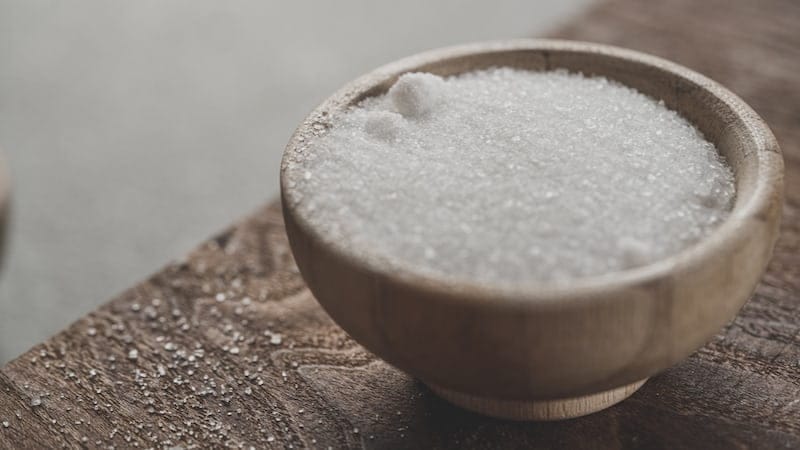Xylitol
What is xylitol?
Xylitol or pentanpentol is also known as birch sugar. Originally, xylitol was obtained from the bark of birch trees. Today, there are other sources, such as cereal bran, straw, the remains of corn cobs or residues from sugar production. In nature, xylitol is also found in fruits, berries and vegetable plants.
Xylitol is similar in consistency to household sugar. It also has the same sweet taste. However, it is not a carbohydrate but a sugar alcohol, an intermediate product of carbohydrate metabolism in the body. This means that xylitol is found in the human body, especially in the liver, the main organ in the process of sugar metabolism.
Xylitol has been used for sugar-free foods, such as sugar-free chewing gum and sweets, for some time. It is now used as a sugar substitute in many households.

Production of xylitol
Xylitol is often thought to be a natural sugar substitute. If you look at the production, you quickly realise that this is not the case. The production process is quite complex. First, xylose, also called wood sugar, is extracted from the raw material. High temperatures, caustic soda and acid are needed to extract wood sugar. Then the xylose is converted into xylitol by pressure.
Use of xylitol
Since xylitol has a consistency similar to household sugar, it can also be used as such. Food and drinks can be sweetened with xylitol. The sugar substitute is also suitable for making jam and baking cakes.
Xylitol is not suitable for yeast dough because the dough does not rise as well. Its use in cold drinks can also lead to the formation of lumps. In this case, it helps to dissolve the birch sugar in a little water beforehand.
Xylitol or conventional sugar?
Whether xylitol is better than conventional sugar cannot be said in general terms. Xylitol is not harmful to health. Unlike stevia, there is no maximum daily dose. Disadvantages of xylitol are that it can cause flatulence, is expensive, does not wean from sugar and is unnatural.
However, xylitol can protect against tooth decay. It reduces bacteria that lead to tooth decay, makes for less plaque and reduces acid-induced decalcification of teeth. Here, chewing gums, mouthwashes and toothpastes containing xylitol are particularly recommended.
Xylitol is also suitable for diabetics, as it hardly affects blood sugar levels and digestion is insulin-independent.
Xylitol has fewer calories than conventional sugar. Per 100 grams, conventional sugar has 400 calories, xylitol only 240. However, since xylitol does not wean you off sugar, it does not reduce your craving for sweets.